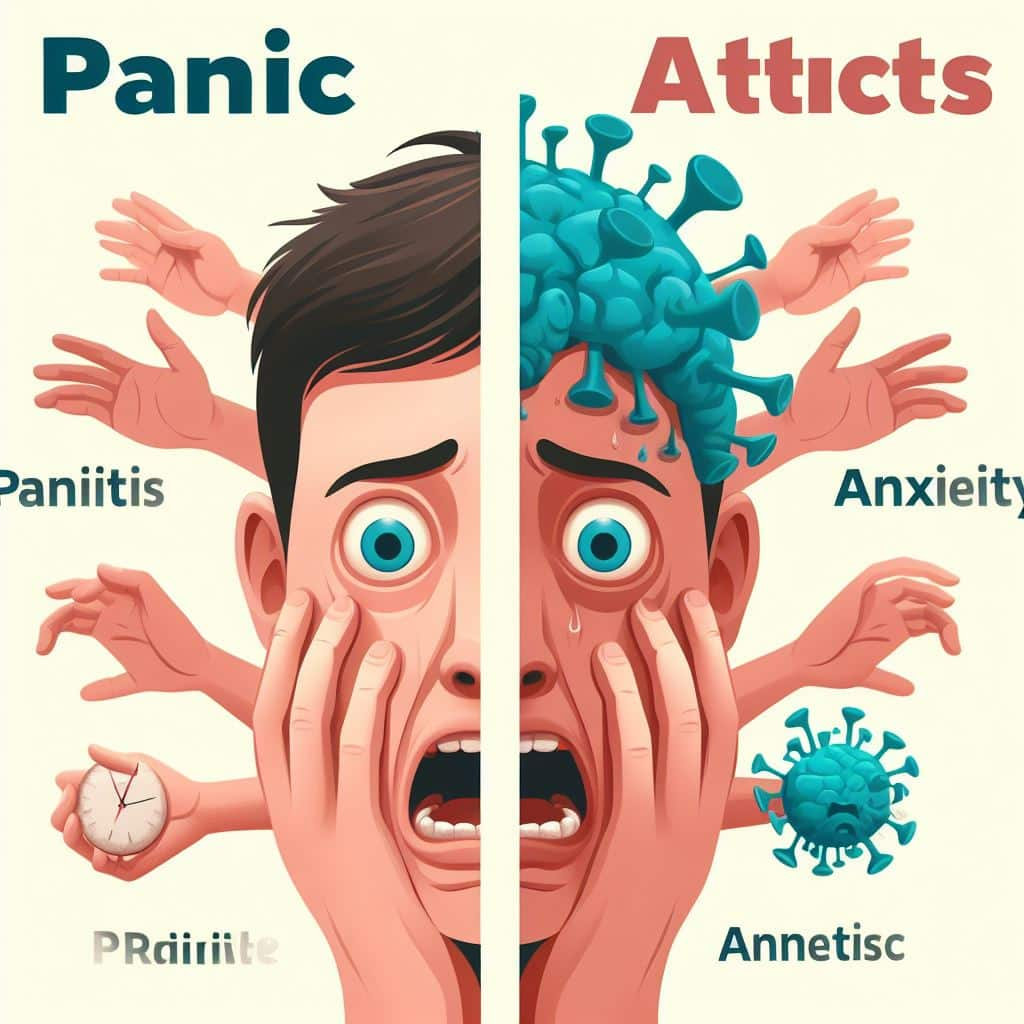In our journey through life, we often encounter individuals whose lives might not be going as smoothly as they’d like us to believe. Sometimes, these signs are so subtle that we might not even notice them at first glance. In this essay, we’ll explore a list of subtle signs that might indicate someone’s life isn’t quite as rosy as it appears on the surface. From a lack of enthusiasm for going home to unexplained weariness and unexpected wisdom, these signs can provide valuable insights into the challenges someone may be facing.
1. A Lack of Enthusiasm for Home
One of the most subtle signs that someone’s life might not be going well is when they don’t get excited to go home after work. Home is typically seen as a place of comfort and refuge, but when someone consistently finds reasons to stay at work longer or avoids going home altogether, it could indicate underlying issues.
2. Weariness and Wise Advice
Have you ever encountered someone who appears tired with low energy levels, yet paradoxically, they offer some of the best advice to others? This peculiar combination might suggest that they have experienced hardship or challenging circumstances. It’s as if they possess a reservoir of wisdom that they struggle to apply to their own lives.
3. Seeking Happiness in Others
Some individuals seek their happiness through others. Their emotional well-being becomes dependent on the actions and words of specific people. A single negative interaction with someone they care about can ruin their entire day, underscoring a vulnerability that might hint at deeper personal struggles.
4. Loss of Passion
A loss of enthusiasm for activities and hobbies they once loved is another subtle sign that someone’s life may be taking a toll on them. When they stop engaging in the things that used to bring them joy, it’s worth considering if they’re facing challenges that have dimmed their spark.
5. Unexpected Wisdom
Occasionally, individuals who have faced hardship can offer excellent advice, particularly when it comes to dealing with trauma or navigating unusual and difficult situations. Their unexpected reservoir of knowledge might reveal that they have personally weathered significant storms.
6. Overcompensating for Hardships
In some cases, individuals who have had challenging lives may become hyper-focused on celebrations and events, such as office parties. These gatherings might be the only occasions where they get to partake in festivities, making them eager participants in any form of celebration.
7. The Perpetual Look of Tiredness
A persistent appearance of tiredness can be a subtle sign of life’s challenges. While they may show genuine interest in your life, they might not readily share their own experiences. Their distraction and exhaustion could be indicative of underlying difficulties.
8. The Paradox of Independence
People who have faced hardships might exhibit super independence as a survival mechanism. They’ve learned not to rely on others and have become self-sufficient to an extreme degree.
9. Misappropriated Anger
Misappropriated anger can be a sign of unresolved issues or trauma. While they may seem calm most of the time, they can have extreme reactions to minor incidents, reflecting the emotional turmoil simmering beneath the surface.
10. A Reluctance to Receive
Some individuals consistently feel they don’t deserve to receive anything from others. They may politely decline offers of help or kindness, stemming from feelings of unworthiness instilled by past experiences.
11. The Courage to Explore Trauma
Many people read posts like this one to reflect on their own experiences and gain insights into their emotional well-being. Such reflection can be a powerful step toward understanding and healing.
12. Nonchalant Discussion of Trauma
People who have endured significant hardships may casually discuss traumatic experiences without apparent emotional distress. Their ability to talk about such topics matter-of-factly can be an indicator of the resilience they’ve developed over time.
13. Unfazed Demeanor
Some individuals seem unfazed by life’s upheavals, responding to crises with calm determination rather than panic. This could be a sign that they’ve grown accustomed to navigating difficult situations.
14. Hidden Cracks
While they may appear composed on the surface, close friends and family may detect subtle cracks in their emotional armor. It’s a reminder that appearances can be deceiving, and kindness can go a long way in offering support.
15. Aversion to Sudden Movements
Individuals who wince or react strongly to fast movements around them might be exhibiting signs of hypervigilance, a common response to trauma. Their heightened sensitivity to unexpected stimuli can hint at past difficulties.
16. An Inability to Envision the Future
A lack of vision for the future can be a subtle indicator of a troubled life. When someone struggles to dream or set goals, it may be a sign of hopelessness or past disappointments.
17. Neglected Household Duties
The state of their home can reflect their inner turmoil. When they neglect household chores, such as leaving dishes overnight or neglecting cleaning, it may indicate that they’re grappling with personal challenges.
18. Brief, Hollow Conversations
Engaging with them in conversation might reveal that their responses are brief and lacking enthusiasm. They may seem disinterested in discussing their lives, creating a disconnect in communication.
19. A Sense of Emptiness
In some cases, people may convey a profound sense of emptiness despite maintaining a cheerful facade. This inner hollowness can be a sign of deeper struggles.
20. Putting Others Down
Some individuals, perhaps as a way to cope with their own issues, put others down or engage in negative talk about people around them. This behavior can be a reflection of their inner turmoil.
21. Incessant Gossiping
Constantly gossiping about others might be a way for individuals to divert their focus from their own problems. It can be a subtle sign of a life that’s less than satisfying.
22. A Perpetual State of Busyness
Always being busy with work can be a way to avoid confronting personal challenges. Immersing oneself in work may provide a temporary distraction from life’s difficulties.
23. The Struggle for Outside Validation
Some individuals become desperate for outside validation as they grapple with their own insecurities and self-doubt. They seek external reassurance to fill the emotional void within.
24. A Stoic Exterior
People who appear **unfazed
** by life’s upheavals, even in the face of extreme chaos, may have learned to adapt to adversity and maintain a calm demeanor.
25. Emotional Disconnection
They might compliment, express love, or show affection, but it can come across as subdued. This emotional detachment could be a result of their past experiences, which have left them emotionally scarred.
26. Conversations Dominated by Complaints
A significant proportion of their conversations might revolve around complaints about various aspects of their lives. This negativity can be a subtle indicator of underlying dissatisfaction.
27. Unintentional Weight Loss
Unexplained weight loss can sometimes be a sign that someone is grappling with emotional or psychological challenges that affect their physical well-being.
28. Projecting Perfection on Social Media
Individuals who paint an image of perfection on social media might be compensating for the difficulties they face in their real lives. The stark contrast between their online persona and reality can be telling.
29. Becoming “Invisible”
Some people may choose to become “invisible”, avoiding social interactions and retreating into the safety of their homes. This withdrawal can be an attempt to find solace amid life’s difficulties.
30. A Lost Sense of the Future
When asked about their ideal future, some individuals may struggle to envision it. Their inability to dream or set goals might reflect a sense of hopelessness and disillusionment.
31. Limited Social Circles
People who primarily socialize with coworkers and keep their personal lives private may be using work as a refuge from the challenges they face outside of it.
32. Isolation from Social Activities
They may avoid discussing their weekend plans or only engage in non-committal activities they can do alone. This avoidance can be a reflection of their inner struggles.
33. Passive, Solo Hobbies
Engaging in passive, solo activities such as watching TV, playing video games, or reading books can be a way to cope with inner turmoil. These hobbies provide a temporary escape from reality.
34. Solitary Bar Visits
When they visit bars alone and remain unapproachable, it can indicate a desire to be alone with their thoughts or an aversion to socializing due to personal challenges.
35. Excessive Drinking
Excessive alcohol consumption can sometimes be a visible sign of inner distress. It’s important to recognize when drinking habits are veering into unhealthy territory.
36. A Subdued Reaction to Life
They might still compliment, show love, and express emotions, but their reactions appear subdued. This can be a result of the hardships they’ve endured.
37. A Predominance of Complaints
Conversations dominated by complaints about various aspects of life can be a reflection of underlying dissatisfaction and distress.
38. Unhealthy Weight Loss
Unintentional weight loss can sometimes be a sign that someone is struggling emotionally and not taking proper care of themselves.
39. Overly Positive Online Persona
An excessively positive online persona can be a way to compensate for personal difficulties. The disparity between their online image and reality may be indicative of hidden challenges.
40. Negative Interpretation of Neutral Events
Interpreting neutral events negatively can suggest that they’re constantly on edge or expecting the worst. This perspective may stem from past trauma or ongoing difficulties.
41. Forgetfulness and Neglect of Self
Forgetting important details, wearing worn or torn clothing, or neglecting self-care can all be signs of someone who is struggling with the demands of daily life.
42. Obsession with External Lives
Spending excessive time tracking and critiquing the lives of celebrities or influencers can be an indication that someone is using this fixation to escape from their own challenges.
43. A Withdrawn Nature
A withdrawn and shy demeanor, accompanied by polite responses when spoken to, might be a sign of someone who is dealing with inner turmoil and chooses to isolate themselves.
44. Limited Dreams and Aspirations
Inability to envision a better future or setting modest goals can suggest that someone has been disheartened by repeated setbacks.
45. Self-Identification
In some cases, individuals might openly identify with these subtle signs as a way to acknowledge their own struggles.
46. Avoidance of Eye Contact
Avoiding direct eye contact with others can be an indicator of social discomfort or emotional distress.
47. Holding onto Grudges
Mentioning long-held grudges can suggest that someone is carrying emotional baggage and may not have found closure.
48. An Unhealthy Focus on Others
Excessive concern about what others are doing can be a way for individuals to distract themselves from their own challenges.
49. Offering Help to Others
Some individuals with personal difficulties may help and support others excessively. This behavior could be a way to divert their attention from their own issues.
50. A Smile Hiding Inner Turmoil
Individuals who appear cheerful, polite, and always wear a smile in public might be using this demeanor to mask their inner struggles. This external positivity can be a stark contrast to their private battles.
In conclusion, life can be a complex journey, and sometimes the most subtle signs can offer profound insights into the challenges that individuals face. As we encounter people in our lives, it’s essential to remain empathetic and understanding, recognizing that beneath their exterior, they may be dealing with profound difficulties. By fostering a supportive and non-judgmental environment, we can offer solace and help those in need find their way to a brighter path. Remember, a little kindness can go a long way in someone’s life













